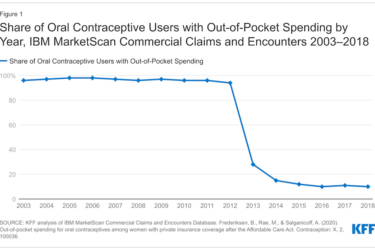
Andy Slavitt, acting administrator for the Centers for Medicare and Medicaid Services, told D.C. health reporters he tries to be as direct and honest as possible when testifying in hyper-charged congressional hearings about the Affordable Care Act.
“I think of congressional oversight and my relationship with the media as very much an exercise in, ‘you guys see things I don’t,’” Slavitt said during an Oct. 6 panel discussion for AHCJ’s D.C. chapter, held at New York University’s D.C. campus.
“I show up and assume they’re hearing things, they have reasonable questions and it is our job to answer those questions,” Slavitt continued.
The theme of the evening was health care developments to watch for after the November election. Other panelists included Neera Tanden, president of the Center for American Progress, and Bill Hoagland, senior vice president at the Bipartisan Policy Center and former senior budget advisor to Senate GOP. Kaiser Health News’ Julie Rovner and USA Today’s Jayne O’Donnell moderated the discussions.
The panelists offered thoughts on a range of issues, including the insurance marketplaces, innovative payment models, prescription drug prices, Congress’ ongoing disagreements over fixes to the Affordable Care Act and differences between Hillary Clinton and Donald Trump.
Slavitt talked about three populations he wants to prioritize in CMS’ effort to further expand health coverage: the working poor, the structurally uninsured and people in the “transitional” economy.
Asked whether the 2017 marketplace prices will further inflame debate over the health care law, Slavitt said they’ll be higher than last year but emphasized that many insurers priced their products too low to begin with.
“The reality is, I think in many markets the rate increases are just needed, and they’re going to be important to sustainability,” he said.
Slavitt also spoke extensively about CMS’ new innovation center, saying he and Health and Human Services Secretary Sylvia Burwell have tried hard to keep the center out of political disputes by explaining its work to members of both parties.
He said the center will become even more “vital” as CMS sets up parameters for the new quality payment program established by MACRA (the Medicare Access and CHIP Reauthorization Act of 2015) and warned that naysayers don’t understand the support they’ll get to implement the new models.
Hoagland and Tanden talked about how they expect Congress and the new administration to act next year on some prominent health care issues.
Hoagland said congressional Republicans may try to address the Obama administration’s potential use of the judgment fund to make risk corridor payments owed to insurers, as part of a year-end continuing resolution to fund the government. He also said members might feel a need to address health care expenditures, which are growing more slowly but still unsustainably.
He and Tanden both think Congress is likely to take some action next year on drug prices, as there’s bipartisan interest in finding some policy solutions. Tanden said that would especially be the case under a Clinton White House. She feels Republicans and Democrats might find some common ground on transparency issues and that Sen. Chuck Grassley could be an effective GOP leader on the issue, as he’s long been a consumer advocate.
About two dozen members attended the event, which was organized by D.C. co-chairs Kimberly Leonard of U.S. News & World Report, Erin Mershon of CQ Roll Call and Tina Reed of Washington Business Journal.









